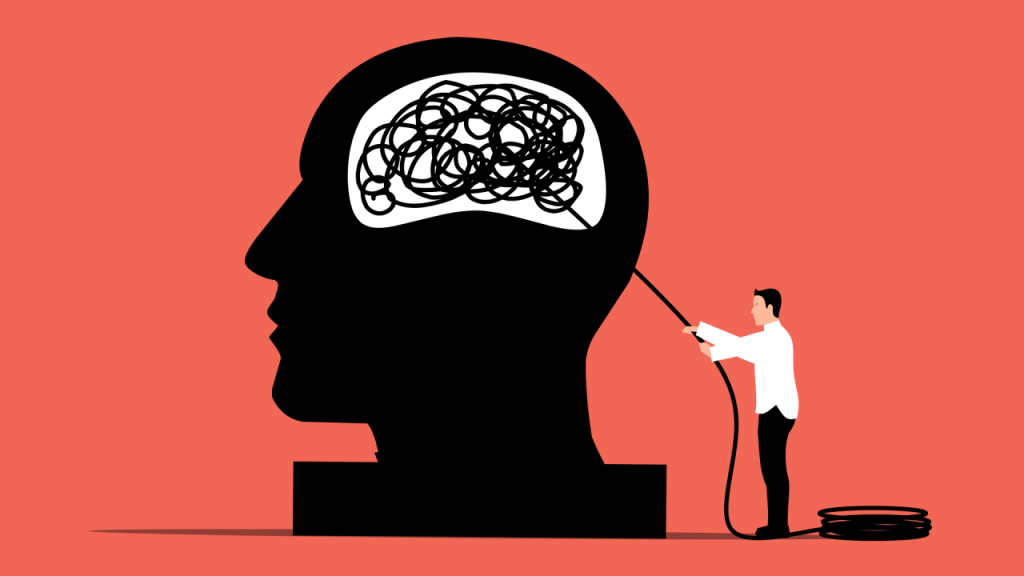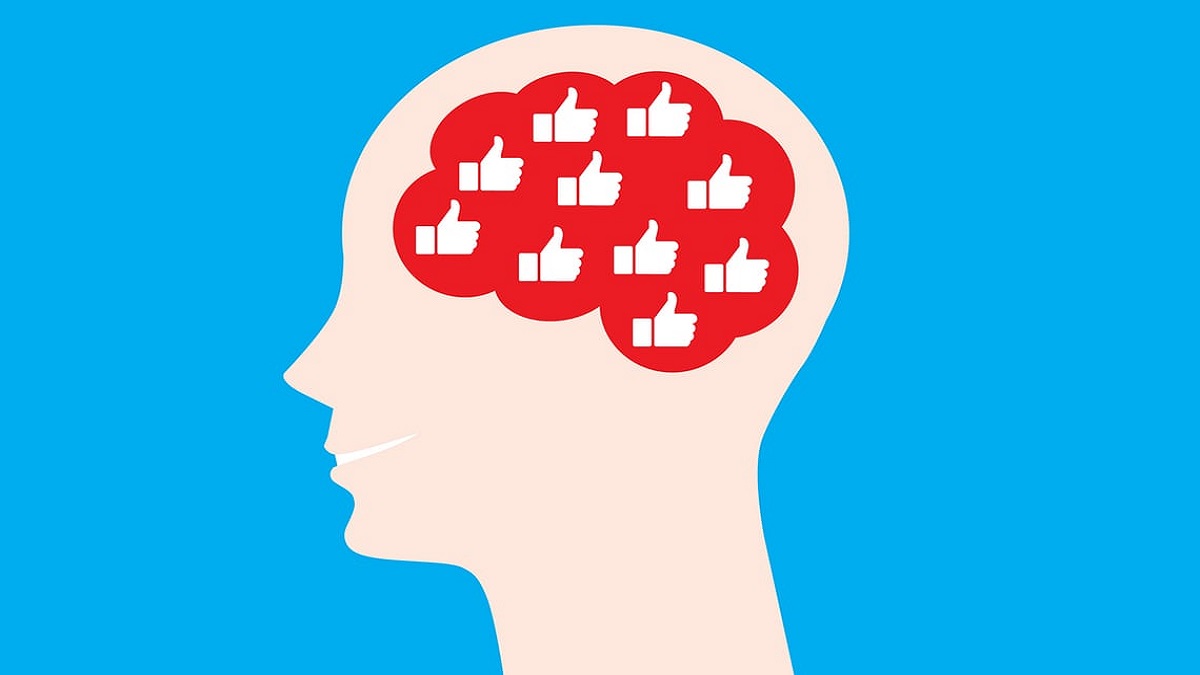The brain’s reward system mostly depends on dopamine, a chemical messenger that controls motivation, emotion, movement, memory, sleep, and behavior regulation. Every time you do a helpful activity, it gives you a joyful sense that encourages you to repeat it. Continue reading to learn about ways to increase your dopamine levels.
Dopamine is a crucial neurotransmitter with a variety of uses in the brain. It has a role in memory, attention, reward, motivation, and even the control of bodily motions. Large doses of dopamine provide sensations of reward and pleasure that encourage you to repeat a certain activity.
Low dopamine, on the other hand, has been associated with diminished excitement and drive for activities that would normally thrill most individuals. In most cases, the neurological system regulates dopamine levels effectively. An imbalance in these levels may lead to the onset of mood disorders such as depression.
Tips For Increasing Dopamine Levels

1. Have Lots Of Protein
Twenty amino acids are required to synthesize every protein in your body. Amino acids are the building blocks of proteins. Tyrosine is an amino acid essential for the synthesis of dopamine and is found in foods high in protein, such as beef, turkey, eggs, dairy, soy, and legumes. These are among the ways to increase your dopamine levels.
Research indicates that augmenting tyrosine and phenylalanine, two more amino acids, might elevate dopamine levels in the brain, perhaps fostering introspection and enhancing memory.
However, cutting out tyrosine and phenylalanine may lower dopamine levels. Tyrosine and phenylalanine, two amino acids that may be found in diets high in protein, are converted into dopamine. Excessive consumption of these amino acids may increase dopamine.
2. Have Less Saturated Fat
According to some studies, when ingested in excess, saturated fats—found in foods like butter, animal fat, full-fat dairy, palm oil, and coconut oil—may interfere with dopamine transmission in the brain.
According to research, rats given 50% of their calories from saturated fat showed lower levels of dopamine signaling in the brain’s reward regions when compared to animals given the same number of calories from unsaturated fat.
More study is required to confirm the hypothesis put out by some researchers that diets rich in saturated fat may cause inflammation in the body, which might alter the dopamine system. Saturated fat diets have been linked to a dulled reward response via reducing dopamine transmission in the brain, according to research. But additional investigation is required.
3. Eat Home Made Foods
Dopamine levels may be raised with handmade whole-food meals and snacks that are a symphony of tastes and nutrients with minimally processed components. A variety of fresh fruits and vegetables, lean meats, healthy fats (like avocado or olive oil), and complex carbs make up the culinary canvas.
These ingredients work in harmony to fuel the body and support the best possible neurotransmitter activity; they also answer how to increase your dopamine levels.
These vital micronutrients support the enzymatic processes that are necessary for the synthesis of dopamine precursors, including phenylalanine and tyrosine. Taking this whole-food approach to diet promotes general neurological health and well-being and accelerates increased motivation.
4. Exercise Regularly
Doing yoga, dancing in your kitchen, going for a quick stroll, or working out at home may all contribute to the production of healthy dopamine levels. Enhancing sleep patterns via exercise helps maintain regulated dopamine levels.
Studies have shown the beneficial effects of exercise on neurotransmitter production, particularly dopamine. As a result, engaging in regular exercise may lessen an individual’s susceptibility to illnesses like anxiety and depression. Engage in any exercise that you find enjoyable.
5. Get Adequate Sleep
The brain experiences sensations of wakefulness and alertness when dopamine is released. According to research, dopamine naturally decreases in the evening when it’s time to go to sleep and is produced in significant numbers in the morning when it’s time to wake up.
Nevertheless, it seems that sleep deprivation throws off these innate cycles. Maintaining a regular sleep schedule that meets your needs will help you feel more rested and productive throughout the day as one of the ways to increase your dopamine levels.
Excessive sensations of tiredness may be caused by sleep deprivation because it lowers dopamine sensitivity in the brain. Your body’s natural dopamine cycles may be regulated if you get a decent night’s sleep.
6. Limit Processed Sugars
It is possible for processed sweets, such as soda and candies, to elevate your dopamine levels momentarily and artificially. Sugar may temporarily increase your dopamine levels while altering the pace at which your body normally creates it, much as alcohol and recreational drugs do.
You could get an exhilarating rush if you eat a lot of sugar in a short period of time. It’s a sugar rush. Usually, it is just momentary and is followed by a depressing collapse.
7. Listen To Music
Music is an answer to how to increase your dopamine levels. One enjoyable method to increase dopamine release in the brain is to listen to music.
Dopamine levels in the brain may be raised by listening to music, according to research conducted on both people and animals. Playing your preferred choral and instrumental music might raise your dopamine levels.
8. Practice Meditation
Clearing your mind, turning your attention inside, and allowing your thoughts to pass by without attachment or judgment is the practice of meditation.
It may be done in a standing, sitting, or even walking position, and consistent practice leads to better physical and mental wellness. Meditation has been shown to help raise dopamine levels. Consequently, it has been shown that frequent meditators are more receptive to criticism than non-meditators.
9. Have More Time In Natural Light
Dopamine and other mood-enhancing neurotransmitters may be found in lower concentrations when exposed to low amounts of sunshine, whereas exposure to sunlight can raise these levels. Seasonal affective disorder (SAD) may sometimes result from this.
Nevertheless, it’s crucial to receive some sunshine exposure each day. When UV radiation is highest, which is usually between 10 a.m. and 2 p.m., limit its use during these peak hours and use sunscreen whenever the UV index is higher than 3. Dopamine levels may be raised by sunshine, but it’s crucial to follow sun exposure precautions to prevent skin injury.
How Lack Of Dopamine Effects Mental Health
Your memory, focus, and ability to solve problems are all examples of neurocognitive processes that may deteriorate when you have a dopamine issue and don’t know the ways to increase your dopamine levels.
Similar to the mood-regulating neurotransmitter serotonin, dopamine plays a role in several psychiatric disorders. Certain medical and psychological conditions are associated with dopamine receptors that don’t work appropriately.
Parkinson’s Disease: Some neurodegenerative disorders, including Parkinson’s disease, may cause decreased levels of dopamine since these diseases involve the death of nerve cells that produce and release dopamine.
ADHD: Research has shown that individuals with ADHD have dopamine disturbances, which are linked to their impulsive and inattentive behaviors. Reward and motivation deficiencies may be present in ADHD patients, which prevents them from altering their behavior to accommodate shifting reward situations.
Schizophrenia: Dopamine signaling pathways and receptors in the brain are known to alter schizophrenia. Antipsychotic medications benefit certain people with schizophrenia by acting as dopamine antagonists.
Substance Addiction: Addiction may emerge from dopamine-triggered conditioned reactions brought on by certain habits, such as smoking, gambling, or alcohol use. The reason why some individuals experience addiction more than others can be because of innate variations in dopaminergic pathways.
MDD (Major Depressive Disorder): MDD is one of the most prevalent mental health conditions, and one of its prominent symptoms is anhedonia, or the inability to experience pleasure. Anhedonia may be caused by a dopamine shortage.
FAQ
Q: What is the effect of excess dopamine?
A: Psychosis, schizophrenia, and depression are among the mental diseases associated with dopamine imbalances in certain brain regions. An excessive amount of dopamine has been associated with aggressive behavior and difficulty reining in urges. Addiction and ADHD are also associated with dopamine abnormalities.
Q: How does a low dopamine state feel?
A: Constipation, poor moods, prolonged fatigue, sleep disturbances, and other adverse consequences are typical symptoms. Avoiding dopamine shortages may be achieved via socializing, regular exercise, eating healthily, and listening to music.
Q: Does dopamine help with focus?
A: Dopamine is involved in our perception of rewards and pleasure. It is a major component of the special thinking and planning abilities of humans. It facilitates goal-setting, concentration, and curiosity about new things.











